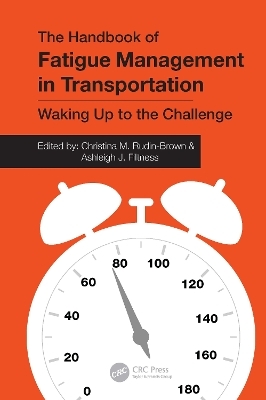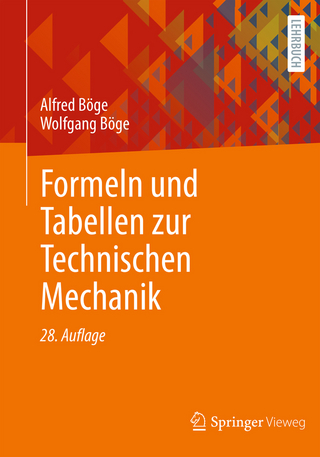
The Handbook of Fatigue Management in Transportation
CRC Press (Verlag)
978-1-032-08139-7 (ISBN)
In the world of transportation, fatigue is a silent killer that can affect us all. Understanding fatigue, including how to manage it to minimize safety risk, is of great importance. However, while it is one thing to recognize that fatigue is a critical safety issue, it is quite another to set up a successful, scientifically informed fatigue risk management programme. This book is here to help. It has been carefully designed as a comprehensive reference point, bringing together international expertise from leaders in fatigue science, and showcasing valuable insights from transportation industry practitioners.
The 40 authored chapters are divided into six sections, to better understand fatigue science, the consequences of fatigue in transportation, contributors to fatigue, managing fatigue and promoting alertness, real world case studies of fatigue management in practice, and future perspectives. While it is possible to read each chapter in isolation, most will be gained by reading the book as a whole. Each chapter starts with an abstract overview and concludes with summary bullet points, creating a handy "quick check" for key points.
This accessible text is for those who are interested in supporting alert and safe transportation operations. It is suitable for professionals, transport managers, government advisors, policy makers, students, academics, and anyone who wants to learn more. All transport modes (road, rail, maritime and aviation) are considered. For anyone waking up to the complex challenge of fatigue management, this handbook is a must.
Dr Christina (Missy) Rudin-Brown, PhD, CCPE has over 20 years’ experience in transportation safety human factors research and investigation and has published over 100 peer-reviewed publications. She currently manages the Human Factors and Macro Analysis team at the Transportation Safety Board of Canada (TSB) and does part-time consulting with Toronto-based Human Factors North, Inc. She has investigated the existence, influence, and management of fatigue in occurrences from all modes of transportation and is an expert member of several international transportation safety committees. She is co-editor, with Dr Samantha Jamson, of the book "Road Safety and Behavioural Adaptation: Theory, Evidence, and Action", published by Taylor & Francis (CRC Press). Professor Ashleigh Filtness, PhD is a Professor of Transport Human Factors and Sleep Science at Loughborough University, UK. Ashleigh is fascinated by sleepiness and fatigue and their impact on safety. She has spent over 15 years’ performing transportation safety research and has authored over 90 peer-reviewed publications. Since completing her PhD in 2011 on ‘Obstructive sleep apnoea and daytime driver sleepiness’, Professor Filtness has continued her fatigue research working in the Human Factors groups at the Monash University Accident Research Centre (Melbourne) and the Queensland University of Technology’s Centre for Accident Research and Road safety in Australia before moving to the Transport Safety Research Centre at Loughborough University in 2016. Her research seeks to better understand the situations that contribute to sleepiness/fatigue and how these can best be managed to reduce the impact on safety. She specialises in vehicle operator impairment in road and rail transport and has a wealth of experience conducting competitively funded research, industry and government funded projects seeking to improve safety.
Section 1. Fatigue science and transportation. 1.1. Toward a More Precise Definition of Fatigue. 1.2. Measuring operator fatigue and sleepiness. 1.3. Challenges in fatigue research and enforcement. 1.4. The Effects of Fatigue on Performance in Transportation Operations. 1.5. A practical Human Factors method for developing successful fatigue countermeasures. Section 2. Fatigue-related Consequences in Transportation. 2.1. Fatigue-related consequences on road crashes. 2.2. Fatigue risk in Great Britain’s railway industry. 2.3. Awakening to the Challenge of Fatigue Management in Maritime Transportation. 2.4. Fatigue-related consequences in Aviation. 2.5. Telling the story: How and why investigating for fatigue can improve safety in transportation operations. 2.6. Fatigue’s effects on occurrence survivability. 2.7. Regulatory and Legal Frameworks for Managing Fatigue in Transportation. Section 3. Factors to Contribute to Fatigue and Sleepiness in Transportation. 3.1. Sleep Pressure and Circadian Rhythms. 3.2. Jet Lag, Sleep Timing, and Sleep Inertia. 3.3. Sleep disorders and driving. 3.4. Task-related causes or contributors to fatigue and sleepiness. 3.5. Lifestyle as a mediator of fatigue and sleepiness. Section 4. Managing Fatigue and Promoting Alertness in Transportation. 4.1. Approaches to Fatigue Management: Where We Are and Where We’re Going. 4.2. Rules resistance: The inequitable trade, missing logical links and solutions to surmount the challenge. 4.3. Work scheduling – Biomathematical modelling for fatigue risk, and its role in fatigue risk management processes. 4.4. Fatigue risk thresholds. 4.5. Fatigue profiling: An approach to understand occurrence, causes and effects of fatigue in people working in different transport sectors. 4.6. Fatigue detection technology. 4.7. Individual Countermeasures to Fatigue. 4.8. Light as a countermeasure to sleepiness and its potential for use in the transport industry. 4.9. It takes two: Health management and its interface with fatigue. 4.10. Aircrew fatigue and scheduling – a summary of some recent studies using the same outcome measure. 4.11. Fatigue management education for young novice drivers. Section 5. Transportation Fatigue Risk Management in Practice. 5.1. Tram Operations Limited - Insights from our journey to improve fatigue and wellness management.. 5.2. Assessing railway traffic controller safety with an hourly risk index. 5.3. Rail transport: Lessons learned in implementing a sleep apnoea assessment program in the transportation industry. 5.4. Marine transport – Using technologies for managing the risk of fatigue at sea. 5.5. Fatigue and sleepiness in UK policing. 5.6. Managing commercial vehicle driver fatigue in Canada: A government perspective. 5.7. Friend or foe? The use of digital devices in the fight against monotony and boredom in Air Traffic Management. Section 6. Fatigue Risk Management of the Future. 6.1. Road vehicle automation and its effects on fatigue, sleep, rest and recuperation. 6.2. Through the darkness of future past: A cautionary tale. 6.3. Space transport and fatigue. 6.4. The future of fatigue management: Strategies, policies, and societal expectations.
| Erscheinungsdatum | 04.08.2023 |
|---|---|
| Zusatzinfo | 31 Tables, black and white; 61 Line drawings, black and white; 1 Halftones, black and white; 62 Illustrations, black and white |
| Verlagsort | London |
| Sprache | englisch |
| Maße | 156 x 234 mm |
| Gewicht | 1060 g |
| Themenwelt | Technik ► Bauwesen |
| Technik ► Umwelttechnik / Biotechnologie | |
| ISBN-10 | 1-032-08139-2 / 1032081392 |
| ISBN-13 | 978-1-032-08139-7 / 9781032081397 |
| Zustand | Neuware |
| Haben Sie eine Frage zum Produkt? |
aus dem Bereich


